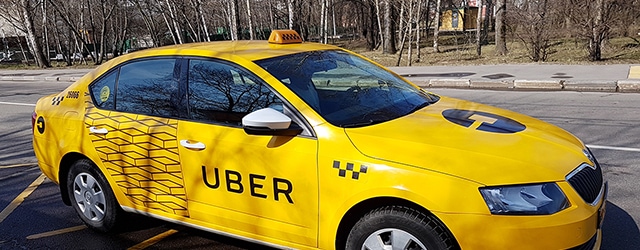Titans of the sharing economy look to go public.

Rival ride-hailing companies Uber Technologies and Lyft are racing to be first with their initial public offerings (IPOs), highlighting a projected bumper crop of technology IPOs in 2019. Other companies that could go public in 2019 include such Silicon Valley names as Airbnb, workplace messaging firm Slack, and data-mining company Palantir Technologies.
Uber, which bankers have valued as high as $120 billion, could be the largest IPO of the year and one of the five largest ever; with the sale of a 15% stake to raise possibly $18 billion in spite of the current volatile market conditions.
Both Uber and Lyft filed confidential paperwork with the US Securities and Exchange Commission in December, signaling the start of their IPO race. As of last June, the SEC is allowing all companies to file early IPO documents or draft registrations without sharing the details publicly. Such filings were previously limited to small businesses.
Among heavyweights, Uber and Lyft follow SoftBank, which raised $23.5 billion in December through an IPO of its Japanese mobile business. That was the second-largest stock market listing ever, following Alibaba, which raised $25 billion when it went public in New York in 2014.
The US IPO market had its most active third quarter since 2014 last year, with 52 deals raising $11.2 billion, according to Renaissance Capital. Technology and biotech companies made up two-thirds of the total. On average, US IPO stocks soared 34% in the quarter, compared with a 7.7% rise in the Standard & Poor’s 500.
Not every offering has been followed by strong trading. Biotech Moderna raised $604 million in December on an $8.1 billion valuation, making it the largest biotech IPO, according to Renaissance Capital, then watched its stock price slump more than 19% on its first day of trading.
The timing of the Uber and Lyft IPOs is uncertain. They represent a new category of issuer for regulators. Neither is profitable. Uber operates in 70 countries; the smaller Lyft is only active in the US and Canada, although it has global ambitions—and, apparently, more passionate subscribers. “Lyft users actually use the service more frequently than Uber users,” says a report by Florida-based investment bank Raymond James. Only 58% of respondents to a survey by the firm have used a ride-hailing app, leaving room for growth.
Uber hasn’t announced a lead banker for its share offering, but Morgan Stanley and Goldman Sachs are the leading tech IPO bankers in the US. Lyft is working with JPMorgan Chase, Credit Suisse, and Jefferies Financial.



